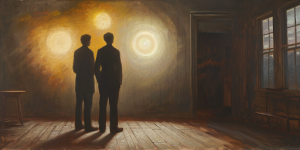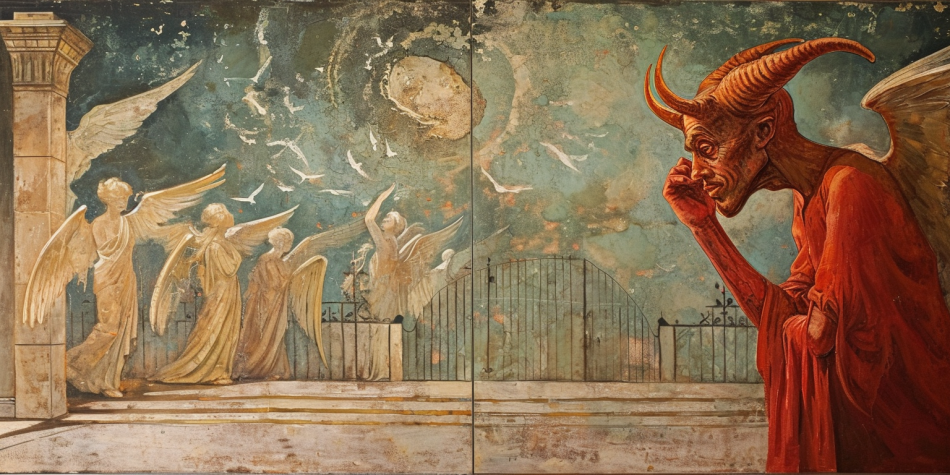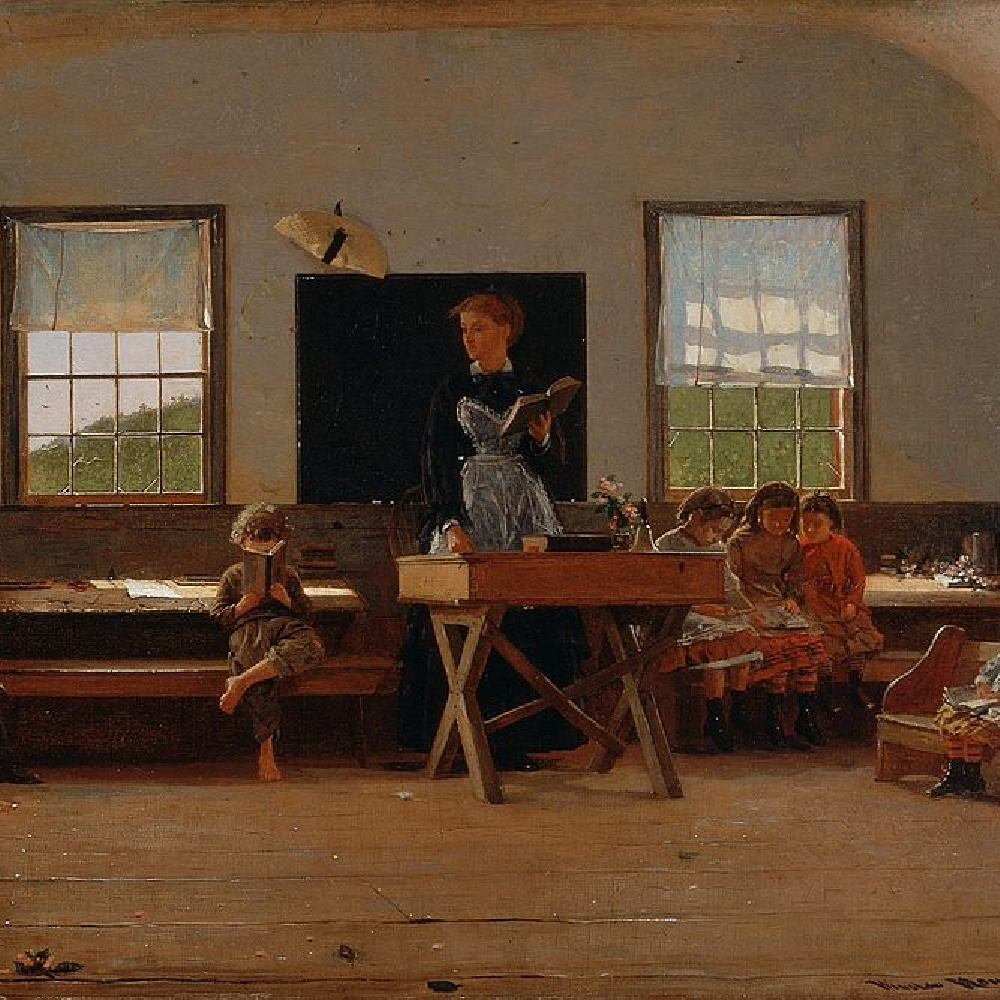The effort to claim that our actions in life do not affect our state after death is just as theologically bankrupt in a Latter-day Saint context as the “no hell” movement has been within the Reformed context.
Christianity has long had a thread of universalism—that our actions on Earth will not affect our life in the hereafter. But this was largely left unstated or left to outsider groups.
But starting in the 1950s, the idea began to gain validity within circles of Reformed theology thinkers because of the work of Karl Barth. Reformed theology is influential among American evangelicals. As the focus on the self-defined individual ascended in US culture, Barth’s “soft universalism” provided a theological mechanism for evangelical thinkers to reconcile their religion with their cultural worldview.
Today, this movement continues stronger than ever, led by mega-church pastor Rob Bell, who teaches that there is no hell as a way to attract Christians who have become disaffected from a more traditional faith background, and this belief has become a pillar of the “moralistic therapeutic deism” belief system which defines the belief of many young Christians.
But ultimately, the belief has proven to function more as an exit door for Christians than an enduring theological foundation. Ironically, for many “Ex”vangelicals,” their belief in the afterlife goes from some people will go to heaven to everyone will go to heaven to no one will go to heaven because there isn’t one. And some critics have suggested that the reason the “no hell” movement doesn’t have staying power is because of it’s ultimate incoherence. It may fit with the broader culture, but it doesn’t fit within broader Christianity.
And it’s this broader culture that seems to be igniting the interest in the no hell movement.
I’m far from the first observer to note that our contemporary Western society is at our historical zenith when it comes to individualism.
In some significant ways, this individualism finds its root in Christian thought and its focus on individual salvation. But individualism has long outgrown its Christian roots. And today individualism is informing Christianity, rather than the other way around. This idea is often expressed in the popular belief that our actions and expressions should spring from our individual desires and not from external demands. External demands, in this worldview, are oppressive to the individual.
There is a natural tension between this worldview and the traditional Christian worldview that our behavior on Earth results in a final destination of heaven or hell. And so as this “expressive individualism” worldview began to ascend, and there was a growing number of individuals who wanted to establish a Christianity that set aside sin, punishment, and the normative expectations that derive from them, Barth’s work on the afterlife was a convenient escape hatch.
To be fair to Barth, I’m not suggesting his theological work was derived from these individualist cultural movements, but rather that his work arrived at a time when it was seized upon and exaggerated by those who were.
As for the Latter-day Saints

While Latter-day Saints are often less connected to the broader US culture than our protestant neighbors, these cultural trends do affect us eventually. And the “no hell” movement is beginning to find purchase among some on the heterodox fringe of the faith.
Because of Latter-day Saints’ distinctive doctrine and history, the ideology is infiltrating Latter-day Saint spaces in different ways than it has Reformed and Evangelical spaces.
Christian Universalism was particularly popular in the revival from which Joseph Smith sprung. And many contemporaries read The Book of Mormon as condemning universalism.
But later teachings on the afterlife contained in Doctrine & Covenants 76, specifically the doctrine of the Celestial, Terrestrial, and Telestial Kingdoms, suggest that virtually all of God’s children will receive some glory. This doctrine allowed for the expansive grace that appealed to universalists, but because our on-Earth actions do affect our afterlife, it avoids the soft relativism that can accompany universalism.
Because of the existence of near-universal glory in its eschatology, Latter-day Saints were not as subjected to the 19th-century universalism that argued that God would not doom most of His children to eternal punishment.
But because their understanding of the afterlife still teaches sin and consequence, they have begun to be subjected to the arguments of the 20th century’s expressive individualists and their conception of the self.
This pushback seeks to reconcile the teachings of the Church with our contemporary conception of the self by creating a doctrine that gives complete consequence-free autonomy to the expressive decisions of the individual. This often takes the form of rejecting any doctrine that differentiates outcomes in the afterlife.
This pushback can take various forms. There are often appeals to God’s love—“A loving God would never …” There are appeals to ignorance about what we know about the afterlife in order to brush aside what we do know. There are appeals to empathy, such as “being told I can’t/must causes me pain.” And there are direct appeals to individualism, such as “what makes you happy on earth is your heaven.”
These critics also mock belief in differentiated afterlifes. One example of this is mocking Latter-day Saints for supposedly believing that those who don’t reach the celestial kingdom will have their genitals changed to look like a Barbie doll. This has been dubbed on TikTok and other social media a “TK smoothie” for reasons I’ll leave to your imagination.
This, of course, is not a doctrine of Latter-day Saints, has never been a doctrine of Latter-day Saints, and has never been taught by any leader of the Church of Jesus Christ. But because teachings that our actions on earth affect our outcomes in the afterlife hit so poignantly against our modern culture, there is a need for some ability to look down on or mock a belief that has been widely held for two millennia. So, they purposefully misread the line “the power of procreation will be removed” written in a non-accepted, speculative work by a Latter-day Saint leader to infer it meant something it obviously does not.
But despite the fact that no one believes this is true, critics believe that Latter-day Saints believe this in order to mock the broader idea of post-life differentiation and shame the Church into aligning its doctrine with the larger cultural trends.
Latter-day Saints do believe in a corporeal resurrection. And because of the teaching in Exodus that we cannot see God in our current body, they believe that resurrected bodies will be different depending on what degree of glory they reside in.
Russell M. Nelson, the current president of The Church of Jesus Christ of Latter-day Saints, spoke in October of last year about the importance of present-day actions to our afterlife. To most observers, these remarks would appear completely non-controversial coming from a religious leader.
As you might imagine, with this backdrop, the remarks prompted an unusual amount of confusing pushback. Because critics are not prepared to forthrightly attack the idea that our actions impact our afterlife because it is still so intuitive and widely accepted among Latter-day Saints, these criticisms often need to take other forms. Specifically, Nelson said, “Your choices will determine where you will live throughout eternity, the kind of body with which you will be resurrected, and those with whom you will live forever.”
Critics clung to this quote to claim that Nelson was teaching the TK smoothie idea to help discredit him and his larger theme, which they seek to undermine.
Reconciling the modern conception of the self with the Christian doctrine that right and wrong are taught to, not defined by, the individual is indeed a difficult proposition. But within a theological context, the answer is not to warp the doctrine to fit today’s milieu, as experience in other traditions has shown does not work, but to excise the influence of extreme Western individualism from our doctrine and teaching.
Those who seek to misrepresent or mock these ideas may be well-meaning, or they may be bad actors, but in both cases, they are missionaries of an alternate cultural worldview that seeks to replace Christianity and has now begun to infiltrate Latter-day Saint spaces as well.

















